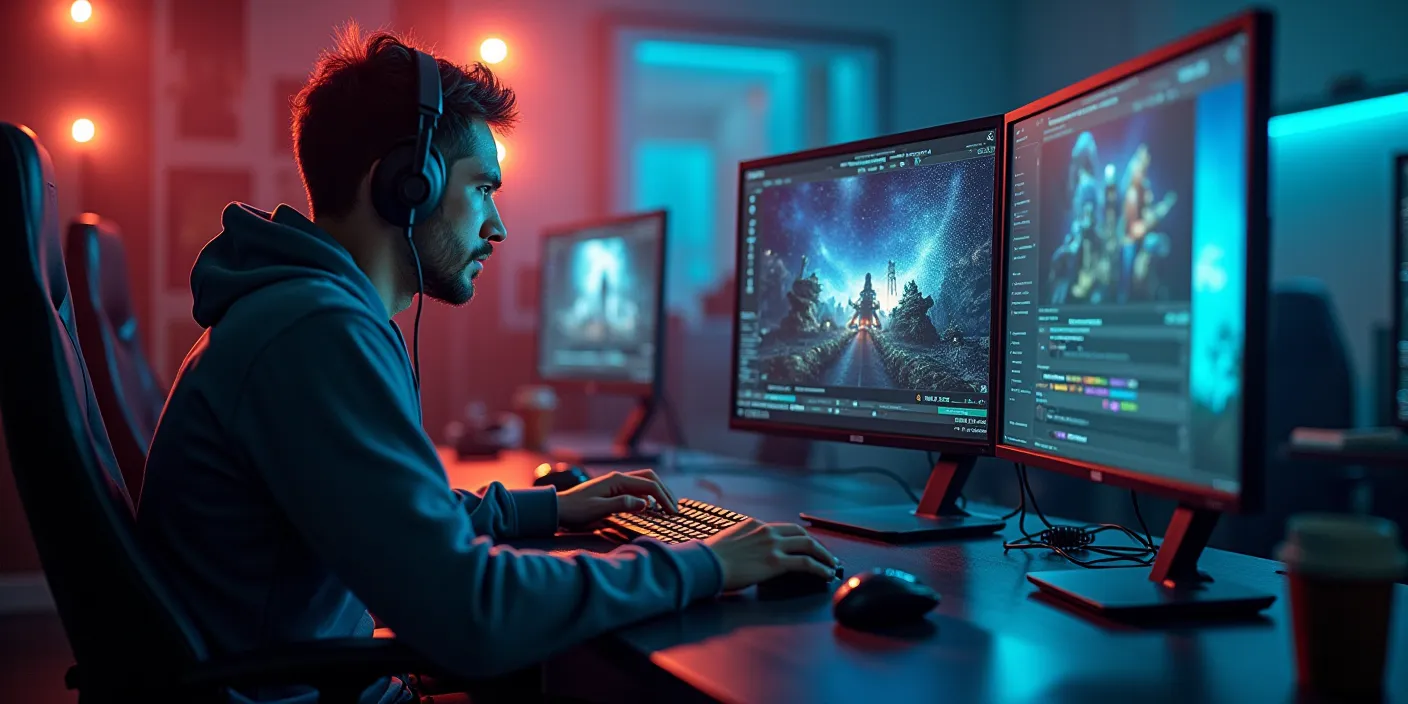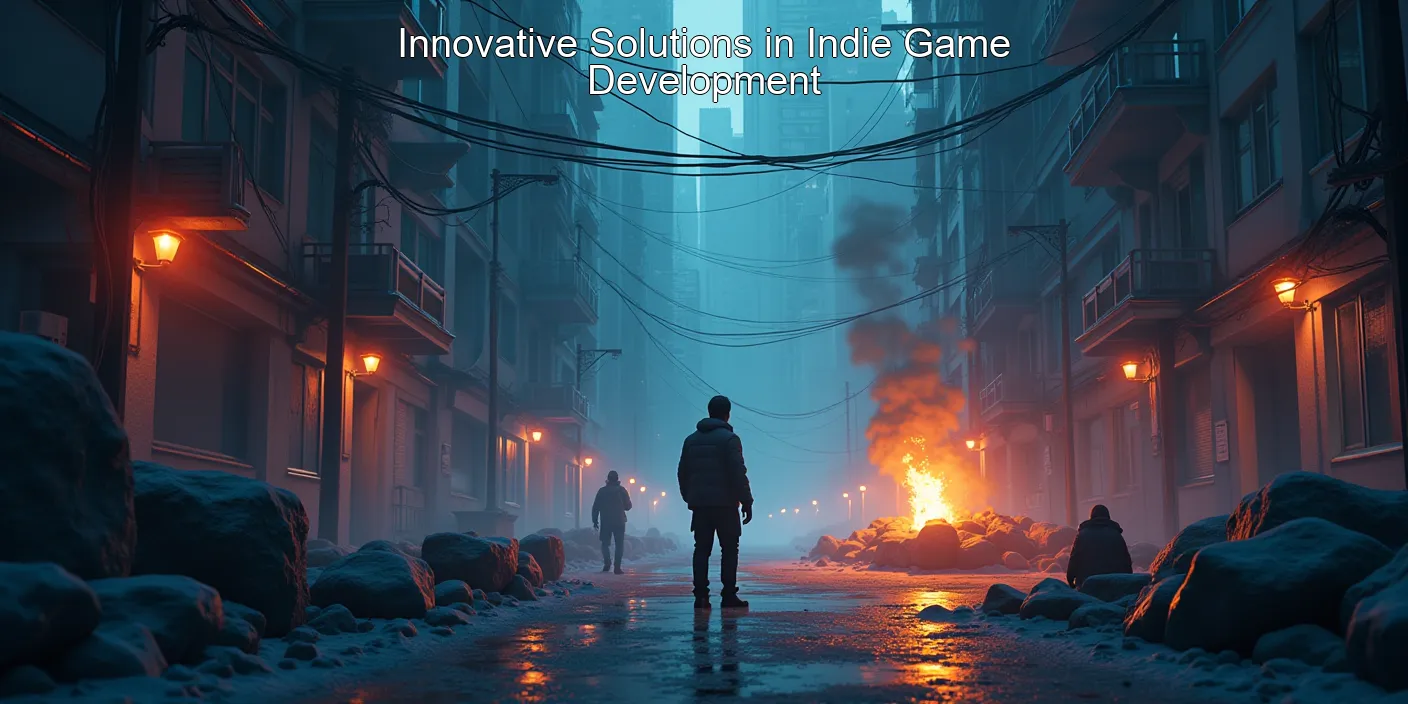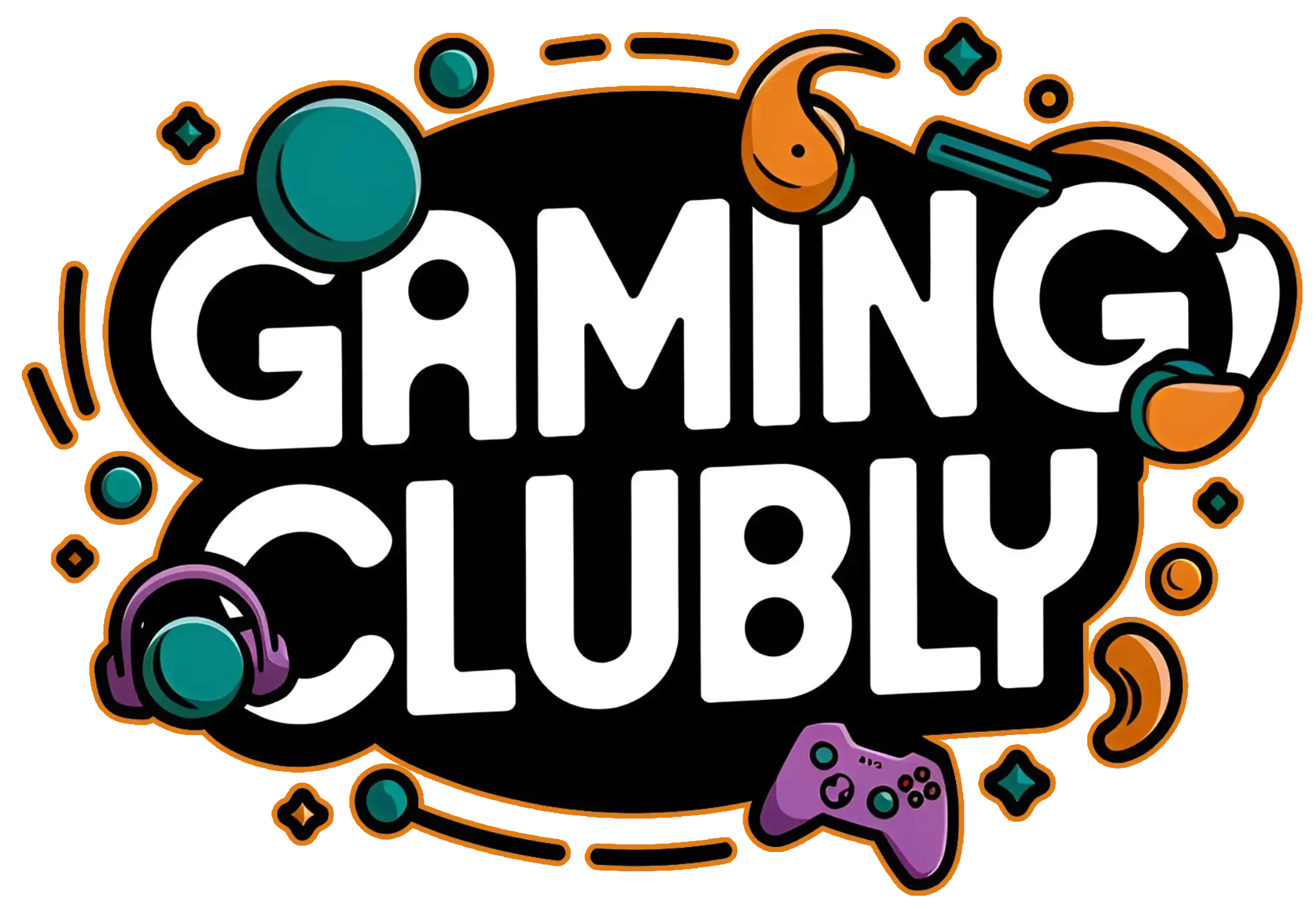Indie Game Development: Overcoming Unique Challenges in the Gaming Industry
| Aspect | Challenge | Opportunity |
|---|---|---|
| Funding | Limited resources | Crowdfunding, grants |
| Marketing | Small budgets | Social media, community building |
| Competition | Oversaturated market | Unique, innovative concepts |
Indie game developers face a myriad of challenges in today’s competitive gaming landscape:

#IndieGames, #DevelopmentChallenges, #GameDev
- Limited financial resources
- Lack of marketing expertise
- Technical constraints
- Fierce competition from AAA titles
“Indie game development is a rollercoaster of creativity, passion, and perseverance. It’s about turning limitations into opportunities.” – Rami Ismail, Indie Game Developer
FAQ: Indie Game Development Challenges
Q: What’s the biggest challenge for indie developers?
A: Securing funding and managing limited resources while competing with larger studios.
Q: How do indie developers market their games?
A: They often rely on social media, community building, and word-of-mouth marketing.
Q: Can indie games compete with AAA titles?
A: Yes, by focusing on unique concepts, storytelling, and innovative gameplay mechanics.
Tips for Overcoming Indie Game Development Challenges
- Leverage crowdfunding platforms like Kickstarter
- Build a strong community around your game
- Collaborate with other indie developers
- Focus on a unique selling point for your game
- Utilize free or low-cost development tools
According to a recent survey, 63% of indie developers cite funding as their primary challenge, while 47% struggle with marketing and visibility.
Innovative Solutions in Indie Game Development

| Challenge | Innovative Solution |
|---|---|
| Limited budget | Asset flipping, procedural generation |
| Marketing constraints | Influencer partnerships, game jams |
| Technical limitations | Open-source tools, community support |
Indie developers are known for their creative problem-solving skills. Here are some innovative approaches:
“Indie Game Devs: Mastering Innovation & Creativity”
- Utilizing asset stores for cost-effective game elements
- Embracing minimalist art styles to reduce production time
- Leveraging game jams for rapid prototyping and networking
- Exploring emerging platforms like VR and mobile gaming
“The beauty of indie games lies in their ability to take risks and push boundaries that bigger studios often can’t.” – Jenova Chen, Creator of Journey
FAQ: Innovative Indie Game Solutions
Q: How do indies compete with limited resources?
A: By focusing on unique gameplay mechanics and storytelling rather than high-end graphics.
Q: What role does community play in indie development?
A: Communities provide crucial feedback, support, and often help with marketing and bug testing.
Q: Are there advantages to being an indie developer?
A: Yes, including creative freedom, direct community engagement, and the ability to work on passion projects.
Best Practices for Indie Game Success
- Develop a strong, unique concept
- Engage with your target audience early and often
- Utilize social media and Gaming Communities for marketing
- Participate in game development events and conferences
- Continuously iterate based on player feedback
A study by the International Game Developers Association found that 47% of indie developers work on their projects part-time, balancing game creation with other jobs.
Despite the challenges, the indie game scene continues to thrive. With platforms like Steam and the Epic Games Store providing visibility, and the rise of Multiplayer Games opening new opportunities, indie developers are finding innovative ways to succeed in the competitive gaming market.
For more insights into game development trends and challenges, check out our Game Dev Insights section. Stay updated on the latest industry news and technological advancements in our PC News category.
Challenges in Indie Game Development: Overcoming Obstacles in the Gaming Industry
Indie game development is a thrilling yet challenging journey. As passionate creators dive into the world of game design, they often face unique hurdles that test their creativity, perseverance, and business acumen. Let’s explore the major challenges indie developers encounter and how they triumph over these obstacles.
| Aspect | Challenge | Solution |
|---|---|---|
| Funding | Limited resources | Crowdfunding, grants |
| Marketing | Low visibility | Social media, community building |
| Competition | Oversaturated market | Unique game concepts |
Indie developers often struggle with:
- Limited financial resources
- Lack of industry connections
- Balancing creativity with market demands
- Wearing multiple hats (designer, programmer, marketer)
“The biggest challenge for indie developers is not just making a great game, but making sure people know about it.” – Rami Ismail, Indie Game Developer
FAQ: Navigating Indie Game Development Challenges
Q: How can indie developers secure funding?
A: Explore crowdfunding platforms, apply for grants, or consider early access programs to generate initial capital.
Q: What’s the best way to market an indie game?
A: Leverage social media, participate in gaming events, and build a community around your game’s development process.
Q: How can indie developers compete with big studios?
A: Focus on unique, innovative gameplay concepts and cultivate a strong connection with your target audience.
Overcoming Technical Hurdles in Indie Game Development
Technical challenges are a significant part of the Game Dev Insights landscape. Indie developers often grapple with limited resources and expertise across various aspects of game creation.
| Technical Aspect | Common Challenge | Potential Solution |
|---|---|---|
| Programming | Complex game mechanics | Utilize game engines like Unity or Unreal |
| Art and Design | Creating high-quality assets | Collaborate with freelance artists |
| Sound Design | Producing professional audio | Use royalty-free sound libraries |
To overcome technical challenges, indie developers can:
- Invest time in learning new skills
- Collaborate with other indie developers
- Utilize open-source tools and resources
- Outsource specific tasks when necessary
“The key to overcoming technical challenges is to start small, learn continuously, and don’t be afraid to ask for help from the indie dev community.” – Jonathan Blow, Creator of Braid
Tips for Tackling Indie Game Development Challenges
- Set realistic goals and timelines
- Focus on your game’s unique selling points
- Build a supportive network within the Gaming Communities
- Embrace iterative development and player feedback
- Stay updated with industry trends and PC News
According to a recent survey by the International Game Developers Association, 68% of indie developers cited “lack of funding” as their biggest challenge, followed by “discoverability” at 62%.
The Future of Indie Game Development

Despite the challenges, the indie game scene continues to thrive. The rise of digital distribution platforms and the growing interest in unique gaming experiences have opened new opportunities for indie developers.
“Indie Game Boom: Thriving Amid Challenges with Digital Growth and Unique Experiences”
The success of indie titles in the Multiplayer Games space demonstrates that with creativity and perseverance, indie developers can carve out their niche in the competitive gaming market.
By understanding and addressing these challenges head-on, indie game developers can turn their passion projects into successful ventures, contributing to the rich and diverse landscape of the gaming industry.
Challenges in Indie Game Development: Navigating the Turbulent Waters
| Key Aspect | Challenge |
|---|---|
| Funding | Limited resources |
| Marketing | Fierce competition |
| Development | Wearing multiple hats |
Indie game development is a thrilling yet daunting journey. Let’s explore the main hurdles developers face:
- Limited financial resources
- Intense market competition
- Balancing creativity with marketability
- Technical challenges and skill gaps
“The biggest challenge for indie developers is not just making a great game, but getting it noticed in an overcrowded market.” – John Romero, co-founder of id Software
Q: What’s the biggest financial challenge for indie developers?
A: Securing initial funding and maintaining cash flow throughout development.
Q: How can indie developers compete with big studios?
A: By focusing on unique, innovative concepts and building a strong community.
Q: What technical skills are most crucial for indie game developers?
A: Programming, game design, and basic art and sound design skills are essential.
Overcoming Financial Hurdles in Indie Game Development
| Funding Source | Pros | Cons |
|---|---|---|
| Crowdfunding | Community engagement | Pressure to deliver |
| Publisher deals | Financial stability | Less creative control |
| Self-funding | Full autonomy | High personal risk |
Navigating the financial aspects of indie game development requires creativity and perseverance. Consider these strategies:
- Explore crowdfunding platforms like Kickstarter
- Seek out indie-friendly publishers
- Apply for game development grants
- Consider early access releases for funding
“Indie game development is not just about creating games; it’s about creating sustainable businesses.” – Rami Ismail, co-founder of Vlambeer
Tips for Financial Success in Indie Game Development
- Create a detailed budget and stick to it
- Prioritize features to manage scope creep
- Build a community early to support crowdfunding efforts
- Consider part-time contract work to supplement income
According to a 2021 survey by the Game Developers Conference, 54% of indie developers rely on personal funds as their primary source of financing.
Marketing Challenges: Standing Out in a Crowded Market
| Marketing Channel | Effectiveness | Cost |
|---|---|---|
| Social Media | High | Low |
| Game Conventions | Medium | High |
| Influencer Partnerships | High | Medium |
Marketing an indie game can be as challenging as developing it. Here’s how to make your game shine:
- Craft a unique selling proposition (USP)
- Leverage social media platforms effectively
- Engage with Gaming Communities
- Utilize press releases and media outreach
“The key to indie game marketing is to start early and be consistent. Build your audience as you build your game.” – Chris Zukowski, indie game marketing consultant
FAQ: Indie Game Marketing
Q: When should I start marketing my indie game?
A: As early as possible, ideally from the concept stage.
Q: How important are trailers for indie games?
A: Extremely important. A compelling trailer can significantly boost visibility.
Q: Should indie developers focus on multiple platforms?
A: It depends on resources, but focusing on one platform initially is often more manageable.
A study by EEDAR found that indie games with marketing budgets over $100,000 earned 12 times more revenue than those without dedicated marketing funds.
Balancing Creativity and Market Demands

| Aspect | Creative Focus | Market Focus |
|---|---|---|
| Game Design | Unique mechanics | Familiar genres |
| Art Style | Distinctive visuals | Appealing aesthetics |
| Storytelling | Original narratives | Engaging plots |
Striking the right balance between creative vision and market demands is crucial. Consider these approaches:
“Balancing Creativity and Market Demands: Strategies for Success”
- Research market trends while brainstorming ideas
- Prototype and test concepts with target audiences
- Blend unique elements with familiar gameplay mechanics
- Stay true to your creative vision while considering player feedback
“The best indie games are those that innovate within established genres, offering something familiar yet fresh.” – Gareth Coker, BAFTA-nominated composer
Tips for Balancing Creativity and Marketability
- Analyze successful indie games in your target genre
- Conduct player surveys during development
- Participate in game jams to experiment with ideas
- Seek feedback from fellow developers and Game Dev Insights
According to the Independent Game Developers Association, games that balance innovation with market appeal are 30% more likely to achieve commercial success.

Navigating the challenges of indie game development requires perseverance, creativity, and strategic thinking. By understanding the financial landscape, mastering marketing techniques, and balancing creativity with market demands, indie developers can increase their chances of success in the competitive world of PC News and gaming. Remember, the journey of indie game development is as rewarding as it is challenging. Stay passionate, stay focused, and keep pushing the boundaries of what’s possible in the world of Multiplayer Games and beyond.



